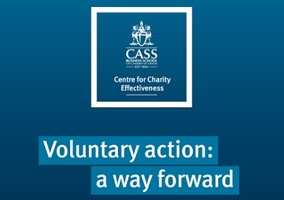Sir Stuart Etherington has produced a wide-ranging report in which he sets out 18 recommendations to improve civil society.
Voluntary Action: A Way Forward, which Etherington produced in a personal capacity while on leave from his role as chief executive of NCVO, has been published through the Centre for Charity Effectiveness at Cass Business School.
Etherington argues that given the scale of the national debt, society must develop a new model in which civil society plays a greater role.
“The answer surely has to be a renaissance of personal responsibility,” he says. “We should be in no doubt about the size of that change.
“Crudely put, civil society has to double in size or more. Clearly in the short term this is impossible, but across several decades there is potential to do so.”
His recommendations to make this happen include reform of the Big Lottery Fund, a new permanent endowment based on money received from dormant assets, reform of public sector procurement, and a universal basic income.
Speaking at a launch event last night, Etherington said the welfare state needs fundamental reform because of “the inevitable shortfall between what people are prepared to pay for public services, and what is needed,” adding: “I suspect it will be a relatively large gap.”
He said: “I think the base argument is that there needs to be a renaissance of personal responsibility within this country, and that that will find expression within different associational behaviours within this country.”
Lessons of the past
Etherington said that the government is planning on spending dormant assets on support for the charity sector, but he worried the cash would be wasted. He said the government had to learn the lessons of unsuccessful capacity building in the Labour era.
“Even in that period of partnership, nobody really gave any thought to sustainability,” he said. “The tap was turned on, we all rushed after the money – some of us competed rather violently for the money – and then the tap was turned off. And all of the infrastructure and other things that were created in that era just collapsed.”
He suggested if the government spent dormant assets on short term projects it would probably not be effective.
“If the government review just says ‘here’s a billion pounds for a bit of capacity building,’ then there is no point, because in the end that is not a sustainable solution,” he said.
Instead, Etherington’s report proposes the creation of locally-based endowment funds and matched funds, to grow local volunteering and other “associational behaviour”.
Social investment
Etherington was also critical of the state of social investment. He stressed that he is in favour of the principle, as it creates “a third leg” of investment organisations, but said that the current propositions were not workable.
“I think the way we’ve structured social investment means that the cash is too expensive and that we need to find other ways,” he said. “I’m not against social investment, I just don’t think that people will borrow on the terms that are being offered.
“I mean high risk, no assets, you’re borrowing at 13 per cent, you must be joking.
“I think there are other ways of doing it, and Access and Big Society Capital are exploring these.”
A full summary of Etherington’s recommendations is available here.
Related articles










